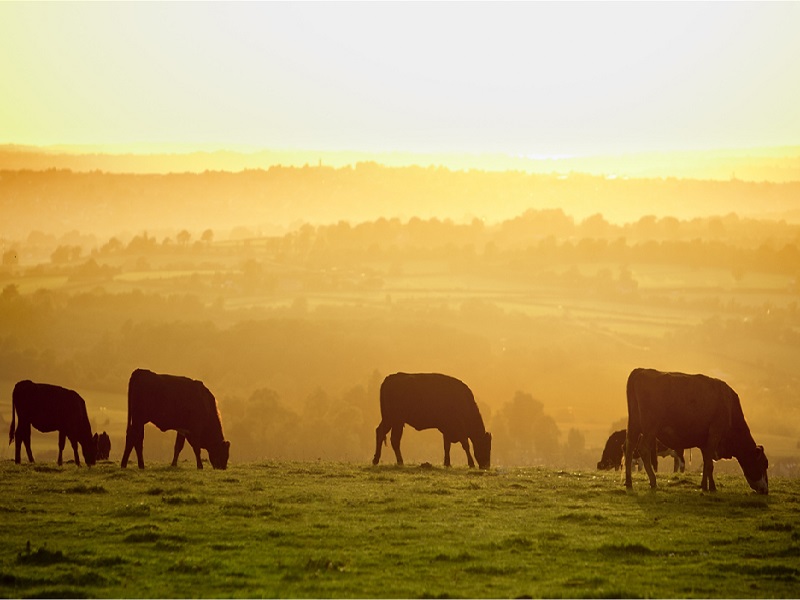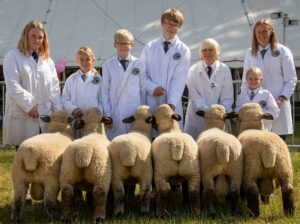Farmers can be the lynchpin of a thriving future green economy, delivering healthy food, combating climate change and improving society through local food chains – but they need help to do it.
According to a week-long series of webinars bringing together stakeholders from across the West Country, central government needs to devolve power and resources to the regions, so that the agri-food industry can get on with the job of rebuilding a vibrant post-Brexit economy.
“The webinars covered the full range of considerations for our rural region – from economic growth to climate change, natural capital and our food systems,” explained Robin Jackson, director of the Rural Business School, which organised the series.
“It was clear, as the week progressed, that all of these threads can be brought together to create a thriving circular and green economy, founded on farming and land use.”
Each webinar attracted close to 100 delegates, and a combined poll of the five sessions revealed that 74% of people think the group’s hope for food, farming or the countryside in general will be fulfilled – but only if we try.
“We can’t wait for the Government – local key institutions need to do the joined-up, long-term, practical thinking that is needed at the moment,” said Sue Pritchard, chief executive at the Food, Farming and Countryside Commission. “We know what our local issues and opportunities are, so devolving the decision-making to the regions is absolutely crucial.”
Clare Parnell, from the Cornwall and Isles of Scilly Local Enterprise Partnership (LEP), explained the organisation’s vision for 2030, with a creative and carbon neutral economy enabling communities to thrive, benefiting the environment and providing an outstanding quality of life for all.
She also explored the region’s unique selling points: Clean energy, geo-resources, research hubs, agri-food and tourism – as well as it’s challenges, including the large productivity gap between the top and bottom quartile of farmers.
To address some of those challenges, Professor Matt Lobley from Exeter University recommended delivering more training and advice to farmers, alongside more applied research in the field.
“It’s people that make a successful business, and a successful farmer needs a really wide range of skills and aptitudes,” he said.
Several farmers joined the discussions to demonstrate how regenerative farming is helping them to sequester carbon and improve the soil and environment, as well as how innovative techniques are reducing livestock emissions.
“There is no single way to address the climate crisis – we have to do everything,” said Peter Lefort at Cornwall Council. “We have to look at the bigger picture.”
Encouragingly, 91% of those surveyed are confident that agriculture and food production can help combat climate change. More than 80% think a joined-up enterprise strategy for agroecology and food could be a game-changer for the South West, and 92% agree that we can develop natural capital alongside sustainable agricultural production.
While farming for the environment is important, food production remains a core focus – and farming has to be profitable for both to succeed.
“Food touches every part of our lives, and crosses economics, politics, health, the environment and society,” said farmer and consultant Catherine Broomfield. “When the food system is in balance it has the potential to make the world a better place.”
Creating a circular economy by recapturing value from waste will make communities more resilient – as will shortening food supply chains and encouraging local fresh production, said Professor Mickey Howard from Exeter University. However, international food chains and supermarkets should not be viewed as ‘bad’ – instead we should work to shape and improve them.
“The Covid crisis has laid bare the fragility of our food system,” added Cathy St Germans of Farms to Feed Us. It also rekindled a link between consumers and farmers, with many shopping locally and cooking from scratch again. “This crisis has empowered people – so how can we keep this energy alive?”
According to Ms Pritchard, it’s important to bring community leaders together and get them really engaged. “It only works if people have a hand in shaping the project.” As the Food, Farming and Countryside Commission is continuing its work for another three years, she promised to work together with the South West LEPs and other stakeholders to help bring about such positive change.
“It’s really exciting to have formed a vision for a sustainable, bright and green future together in the South West,” said Mr Jackson. “Farmers, councils, LEPs and other stakeholders are really keen to work together for the benefit of all, and we can now take the first steps towards delivering that vision.”
- The next round of webinars, scheduled for November, will look at what tools are required to implement positive change and facilitate the project. For more information visit agritechcornwall.co.uk/workshops/growing-back





